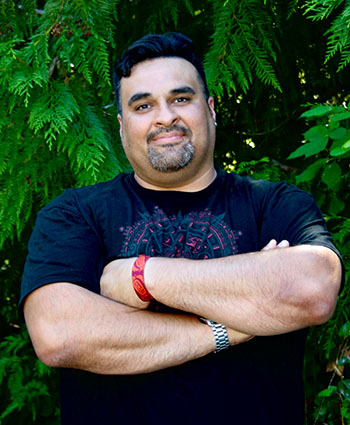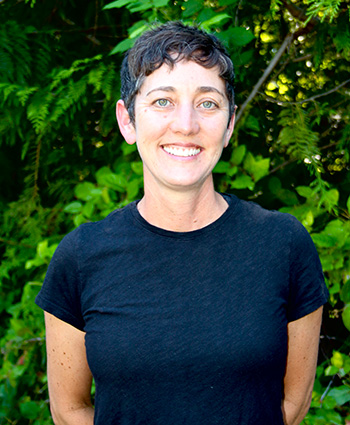The Energy Transitions Initiative Partnership Project: A Regional Partner’s Perspective
March 5, 2024
As an Energy Transitions Partnership Project (ETIPP) regional partner, Spark Northwest’s project managers explain how they help build connections between Pacific Northwest communities and technical assistance providers.
Eriq Acosta

Eriq Acosta, a Spark Northwest project manager, answered the following questions about being an ETIPP regional partner.
How do regional partners such as Spark Northwest help engage and support communities through ETIPP?
Through patience and "moving at the speed of trust"—a collaborative approach that helps build trust and creates opportunities for knowledge sharing, which ultimately leads to communities benefitting from this technical assistance.
What unique perspective(s) does Spark Northwest bring to ETIPP to build stronger connections between communities in your area and national lab experts providing technical assistance?
Spark Northwest does this by acting as a bridge between all parties involved. We facilitate the exchange of technical knowledge and assistance. Through various initiatives and programs, Spark Northwest not only leverages the expertise of national lab professionals but also ensures that this expertise is accessible to and tailored for the specific needs of the communities we serve.
What are the keys to successfully engaging communities through ETIPP?
Trust, connection, and patience. We see that successful community engagement between Spark Northwest, labs, and partner communities requires understanding, accessibility, collaboration, effective communication, and a commitment to learning—not to mention improvement—on all sides.
What do you see as the biggest benefits that regional partner organizations provide to technical assistance programs?
Making sure that each experience with each community is tailored to that community. We strive to provide resources, tools, and expertise that can empower communities to address their specific energy and sustainability goals.
How important is your local perspective to the technical assistance work conducted through ETIPP?
We know our communities or spend time getting to know them before jumping into a project. We approach community engagement with a deep understanding and respect for each community’s unique goals and challenges. Helping create and/or bring about foundational knowledge for communities only strengthens these projects and helps them move forward.
Mia Devine

Mia Devine, a Spark Northwest project manager, answered the following questions about being an ETIPP regional partner.
What are some of the biggest energy challenges faced by communities that Spark Northwest
serves?
All the ETIPP communities we are working with experience frequent and long power
outages (usually due to fallen trees or mud slides during winter storms) and are served
by a single power line. These outages not only have an economic development impact
but disproportionally affect elders and other vulnerable members of the community.
Many of the communities we work with have a strong desire to transition to renewables
and to improve energy resilience but don’t know how to get started or don’t have the
staff capacity to focus on energy issues.
What are you most proud of regarding Spark Northwest’s work with ETIPP this year?
In November 2023, Spark Northwest partnered with Northwest Indian College (NWIC)
and Remote Energy to offer a 2-day, hands-on introduction to solar training for ETIPP
participants. Two weeks later we had a site visit with the Port Gamble S’Klallam Tribe
(PGST), which included a day of technical presentations and energy vision discussions
with a wide range of community representatives and council members. We tasked the
PGST administrator who attended the NWIC training to start the day with a presentation
to introduce energy terminology and solar basics. She was nervous to present on a
topic that she had just learned but she did an amazing job and fueled a lively discussion
about the importance of energy efficiency. It was an inspiring example of building
capacity within a community so they can become energy leaders and gain the confidence
to facilitate these discussions among themselves.
How do you hope ETIPP affects communities in the Pacific Northwest?
As a result of ETIPP, communities will have both the detailed technical plan to move
their energy vision forward and will have built the internal technical expertise to
implement the plan.
Anything else to add?
ETIPP has been a great opportunity for Spark Northwest to deepen our engagement with
rural communities and show up as a long-term partner, rather than helping communities
with one-off grants or projects.
For more partner perspectives and achievements, see ETIPP’s 2023 Annual Report.
Also, learn about ETIPP’s Community Technical Assistance.
Share
